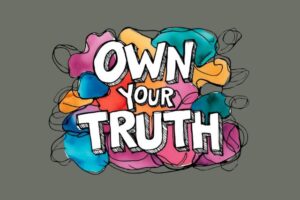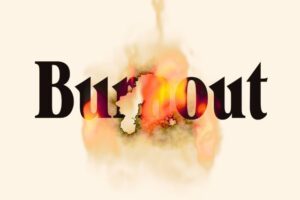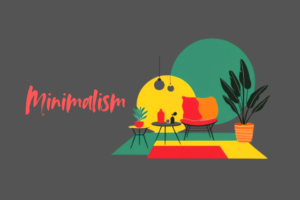Mastering Interview Skills
Interviews can feel overwhelming, but with the right interview skills, you can turn them into a chance to truly shine. Whether you’re looking for your first job or are a seasoned professional aiming for a new opportunity, mastering interview skills is essential to making a lasting impression on potential employers. In today’s competitive job market, having the right interview skills sets you apart from other candidates and gives you a significant edge.
When it comes to interview skills, preparation is key. Knowing how to confidently answer tough questions, highlight your strengths, and present your unique value will help you stand out. Interview skills aren’t just about knowing what to say—they’re about how you say it, how you present yourself, and how you connect with the interviewer. The more you practice and refine your interview skills, the more natural and comfortable the process becomes.
Improving your interview skills doesn’t just boost your confidence; it also boosts your chances of landing the job you want. By focusing on mastering your interview skills, you create an environment where you can truly showcase your potential. Whether it’s perfecting your body language, tailoring your responses, or anticipating common questions, fine-tuning your interview skills will help you navigate the conversation with ease and make a powerful impact.
Remember, every interview is an opportunity to learn and grow, so keep refining your interview skills and stay positive. The more you focus on improving these skills, the closer you’ll get to landing your dream job. Keep practicing, stay confident, and trust that your interview skills will help you succeed in every interview you walk into.
8 Essential Interview Strategies for Success
Mastering the art of an interview takes practice and preparation. By honing these eight interview skills, you can present yourself as the ideal candidate and increase your chances of success. Whether you’re a first-time interviewee or a seasoned professional, these strategies will guide you through the process to help you leave a lasting impression.
Here are the 8 essential strategies to improve your interview performance:
1. Research the Company: Lay the Groundwork for Success
Before stepping into the interview room, it’s crucial to invest time in researching the company. Understanding the company’s mission, values, and recent accomplishments not only shows that you are genuinely interested but also helps you tailor your answers to align with their goals and culture. Being familiar with the company’s products, services, or projects demonstrates that you’ve taken the time to learn about them and are passionate about potentially joining their team. Strong interview skills include the ability to discuss how your values and expertise align with the company’s vision, which will significantly increase your chances of making a strong impression. So, take the time to explore their website, recent news articles, and social media channels before the interview.
2. Prepare Your Responses: Confidence in Your Words
While it’s impossible to predict every question that will be asked, preparing for common interview questions is a powerful part of developing your interview skills. Reflect on your past experiences, strengths, and accomplishments, and create concise, impactful responses that showcase your expertise and achievements. Think about how you can weave your skills into your answers to demonstrate how you’re the perfect fit for the role. Practice your responses with confidence and clarity, as a smooth delivery is just as important as the content of your answer. With well-prepared responses, you’ll feel more confident and less nervous, allowing you to stay focused on showcasing your best self during the interview.
3. Dress Professionally: Present Yourself with Confidence
First impressions are often based on your appearance, and your attire plays a major role in that first impression. Dressing professionally shows that you respect the interview process and take the opportunity seriously. Research the company’s dress code before the interview. Some companies have a business-casual environment, while others might lean toward a more formal dress code. When in doubt, it’s always better to err on the side of dressing slightly more formal. Well-chosen attire not only reflects your professionalism but also helps boost your confidence, as feeling well-dressed can give you the added self-assurance to perform at your best.
4. Arrive Early: Show Your Commitment and Reliability
Punctuality is a key element of interview skills. Arriving early for your interview demonstrates that you are reliable, organized, and respectful of the interviewer’s time. Aim to arrive 10–15 minutes before the interview begins to give yourself time to relax, settle in, and mentally prepare. It also helps avoid the stress of rushing or running late, which can affect your performance. Planning your journey in advance and accounting for any potential delays ensures that you won’t have to worry about being late. Being early allows you to enter the interview room feeling calm and composed, ready to impress.
5. Listen and Engage: Build a Connection with Your Interviewer
Active listening is a vital part of strong interview skills. During the interview, make sure to pay close attention to the questions being asked and respond thoughtfully. Avoid interrupting the interviewer and take a moment to gather your thoughts before answering. A great way to engage during the interview is by asking insightful questions about the role, company culture, or future opportunities within the organization. This not only shows your interest but also allows you to demonstrate your communication skills. Engaging in a two-way conversation helps build rapport and allows you to show that you’re fully present and invested in the interview process.
6. Showcase Your Soft Skills: Highlight What Sets You Apart
While technical skills are important, employers also place a strong emphasis on soft skills such as communication, teamwork, adaptability, and problem-solving. These abilities are often what make the difference between a good candidate and a great one. In your responses, provide examples of how you’ve demonstrated these soft skills in past roles and show how they will benefit the company. For instance, sharing a story about how you worked well within a team to overcome a challenge demonstrates your ability to collaborate and problem-solve effectively. By showcasing your soft skills, you reinforce that you’re not just qualified for the role but also a well-rounded candidate capable of thriving in a dynamic work environment.
7. Be Authentic: Let Your True Self Shine
While it’s important to prepare and present yourself professionally, it’s equally vital to be authentic during your interview. Employers can often tell when a candidate is being disingenuous, so staying true to who you are is a significant part of demonstrating strong interview skills. Let your personality shine through in your responses and show that you’re genuinely excited about the role and company. Employers appreciate candidates who bring their true selves to the table, as it helps to foster a more personal connection and shows confidence in who you are. Don’t be afraid to share your passions or personal motivations that align with the position—this can help you stand out and create a memorable impression.
8. Follow Up: Leave a Lasting Positive Impression
After the interview, a well-crafted thank-you email or note can leave a lasting positive impression. Taking the time to follow up with the interviewer shows appreciation for the opportunity and reinforces your interest in the position. In your message, be sure to express gratitude for their time and reiterate why you’re excited about the role. This simple yet effective step in the interview process is often overlooked, but it demonstrates strong interview skills and professionalism. A thoughtful follow-up can set you apart from other candidates and help ensure you remain top of mind as the hiring decision is made.
By following these tips and honing your interview skills, you’ll be better equipped to present yourself as the ideal candidate and increase your chances of securing your dream job.
Common Interview Mistakes to Avoid
While preparing for an interview is crucial, it’s equally important to avoid common pitfalls that could hurt your chances of success. By staying mindful of these mistakes and sharpening your interview skills, you can present yourself as a confident, well-prepared candidate and make a positive impression.
1. Lack of Preparation
A lack of preparation is one of the most detrimental mistakes you can make during an interview. Not taking the time to research the company, anticipate questions, and prepare your responses can make you appear uninterested or unprepared. Ensure you understand the company’s mission, values, and goals, and practice your answers so you can respond clearly and confidently.
2. Poor Body Language
Your interview skills are not limited to what you say but also how you present yourself. Poor body language, such as slouching, fidgeting, or avoiding eye contact, can create a negative impression. Maintain good posture, sit upright, and make eye contact to demonstrate your engagement and professionalism.
3. Rambling or Over-Talking
While it’s important to provide detailed responses, interview skills also involve knowing how to communicate concisely. Rambling or over-explaining can make you seem unfocused and may cause you to lose the interviewer’s attention. Practice answering questions clearly and directly, staying on topic to make a stronger impact.
4. Speaking Negatively About Previous Employers
Speaking negatively about past employers or colleagues is a huge red flag for interviewers. It can make you seem unprofessional or difficult to work with. Instead, focus on the positive aspects of your past experiences, emphasizing what you’ve learned and how those lessons will contribute to your success in the new role.
5. Failure to Follow Up
Failing to follow up after an interview can give the impression that you’re not fully invested or committed. Sending a thoughtful thank-you email or note not only shows appreciation for the opportunity but also reinforces your interest in the position. This small gesture can go a long way in making you stand out as a professional candidate with excellent interview skills.
By preparing well and avoiding these common mistakes, you’ll be better equipped to succeed in your next interview. Remember, being professional, confident, and authentic will leave a lasting impression that sets you apart from other candidates. Good luck!
Final Thoughts on Interview Skills: Your Path to Success
Interviewing can be nerve-wracking, but with the right interview skills, it’s also a chance to shine and showcase what makes you a great fit for the role. Every interview is an opportunity to present your strengths, enthusiasm, and potential, and it’s up to you to make the most of it. Whether you’re applying for your first job or advancing in your career, mastering these interview skills can make a huge difference.
The key to successful interviews is preparation. By understanding the company, practicing common questions, and fine-tuning your body language, you’ll give yourself the best shot at leaving a lasting impression. Don’t forget the importance of follow-up, which can really help you stand out from other candidates. At the end of the day, interviews are about connection—about showing that you’re not just qualified, but also a great match for the team and the company culture.
If you’re looking to improve your interview skills, there’s no time like the present. Start practicing, get comfortable with your answers, and always be yourself. The more prepared you are, the more confident you’ll feel in the room, and that confidence will translate into a stronger interview performance.
Call to Action
Ready to take your interview skills to the next level? Start today by reviewing the tips we’ve discussed and put them into practice. Take it one step at a time, and before you know it, you’ll be walking into interviews feeling more confident and prepared than ever. Your dream job is just around the corner—let your interview skills take you there!
















